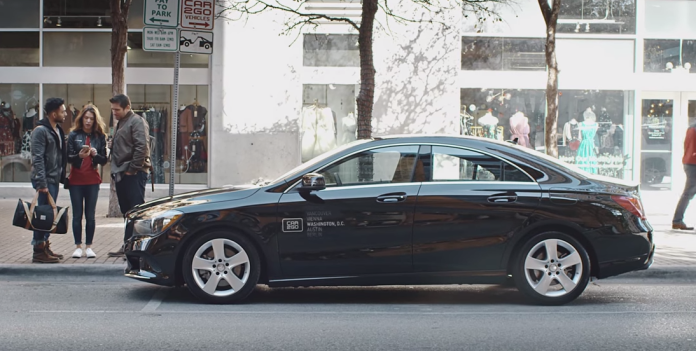The battle for the carsharing market is ratcheting up in Seattle. Car2Go plans to roll out higher end vehicles as part of its Seattle fleet in an apparent bid to directly compete with BMW’s ReachNow offerings. Car2Go first entered the Seattle market in December 2012 as a one-way carsharing program. The first iteration offered an all-Smart Fortwo fleet with hundreds of vehicles that could be picked up and dropped off in a large service area. Over time, Car2Go increased the fleet and expanded its service area until offering a city-wide program with 750 vehicles in 2015.
Car2Go will roll out two new vehicle types built by its parent company Daimler AG. The new vehicle models will include the Mercedes-Benz CLA and GLA classes. The CLA is a premium compact car with four doors, and the GLA is a luxury five-door station wagon-style car. Both classes are capable of carrying five passengers and substantially more storage compared to the tight two-person Smart Fortwo that predominates the Car2Go fleet. The new Mercedes-Benz GLA and CLA models will replace 200 Smart Fortwo cars set for retirement. Car2Go says that there will be 100 vehicles of each model type.
The new vehicles will offer many extra bells and whistles over the Smartcar Fortwo vehicles. These include:
- A rearview camera to make backing up easier and safer;
- A blind spot warning when an object or vehicle is in the driver’s blind spot;
- An adaptive breaking system that can automatically break and alert the driver if a vehicle or object ahead is likely to result in a collision;
-
A navigation system, Bluetooth capabilities, and satellite radio; and
-
Heated front seats for added comfort.
The orginial Smart Fortwo still will be the greener option. New models of the Smart Fortwo average city 33 miles per gallon in city and 39 miles per gallon on highway. The GLA and CLA, however, lag far behind in-city with 24 miles per gallon each. Highway mileage for the GLA and CLA models is better with 33 and 36 miles per gallon respectively. On top of that, Smart Fortwo cars have the benefit of being able to fit into very small spaces, often using half the space of the typical car.
With the introduction of the new vehicles, Car2Go is offering cheaper rates for the premium models through March 31st. For now, the CLA and GLA models will match the current rates of $0.41 per minute. Hourly and daily rates, however, will be higher at $19 and $79 respectively. A regular Smart Fortwo rents at $15 per hour and $59 daily. Car2Go will eventually remove the special per minute rating, setting the cost at $0.49 per minute for the CLA and GLA models after two-month promotion.
According to Car2Go, the company has over 800,000 registered members across North America with 82,000 here in Seattle. That’s an impressive number when you consider that Seattle has just over 684,000 residents putting the share of members at nearly 12% of the city’s population. Data has shown that services like Car2Go can be very effective at reducing private car ownership and give the kind of flexibility and reliability that people desire. Some households have entirely ditched private car ownership. In 2016, Seattle reported that over 4,500 Car2Go members had given up their own cars since the launch of Car2Go.
As Car2Go goes head-to-head with BMW’s ReachNow higher-end product line, the added competition should keep the cost of more luxury carsharing options down, but it will also have the effect of reducing the number of the more eco-friendly, space-efficient, and cheaper Smart Fortwo cars. For some of the more price-sensitive members, reduced access to the more affordable Smart Fortwo option could have negative implications on whether or not such members see the service as a viable transportation choice.
One factor to track as carsharing companies change their service structures is what transportation choices they induce by economic segment. Do they continue to increase the ratw of carless or car-lite households? And for lower-income households, do they continue to give such households additional choices or do they get pushed out of the market due to cost and access changes?
Stephen is a professional urban planner in Puget Sound with a passion for sustainable, livable, and diverse cities. He is especially interested in how policies, regulations, and programs can promote positive outcomes for communities. With stints in great cities like Bellingham and Cork, Stephen currently lives in Seattle. He primarily covers land use and transportation issues and has been with The Urbanist since 2014.


